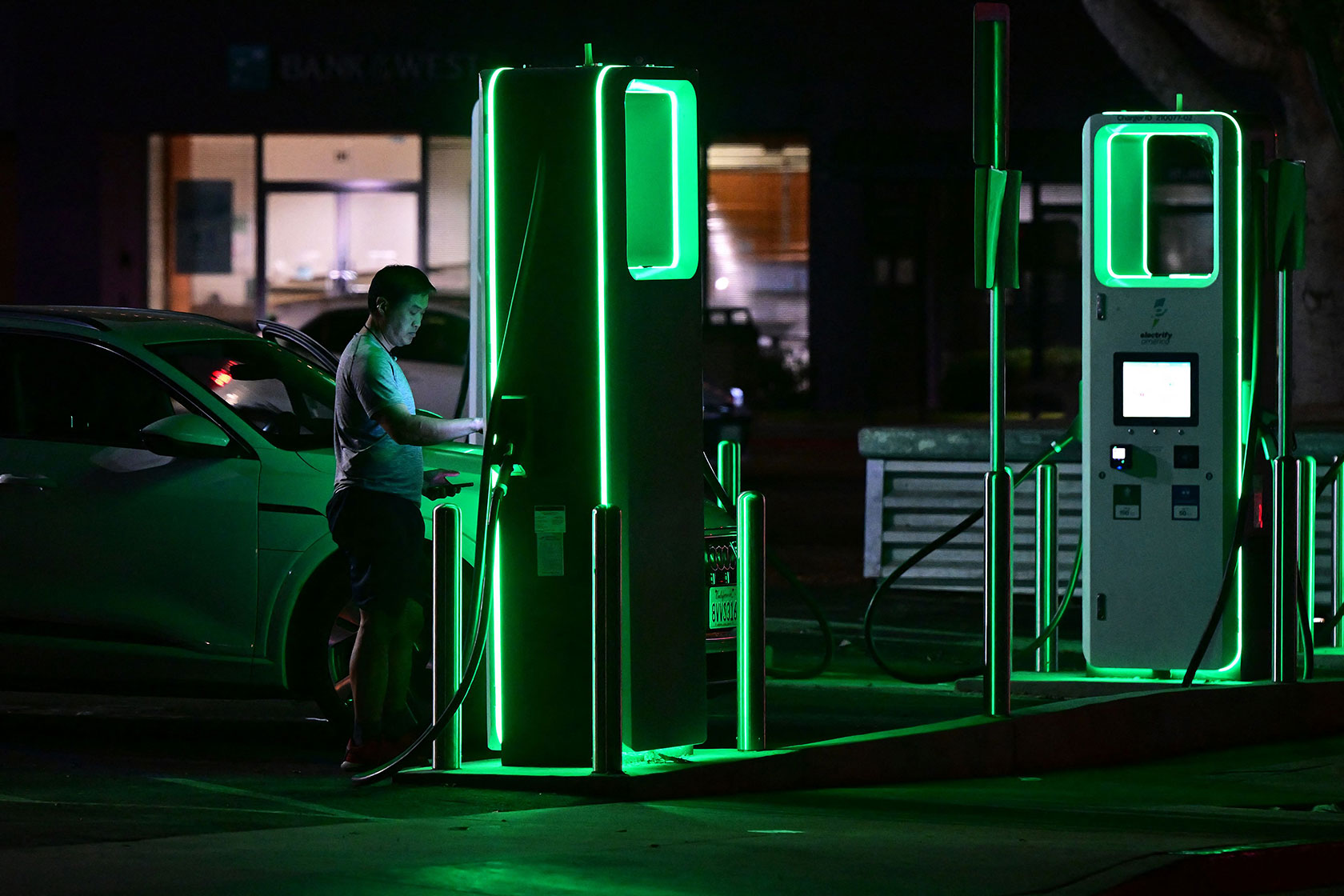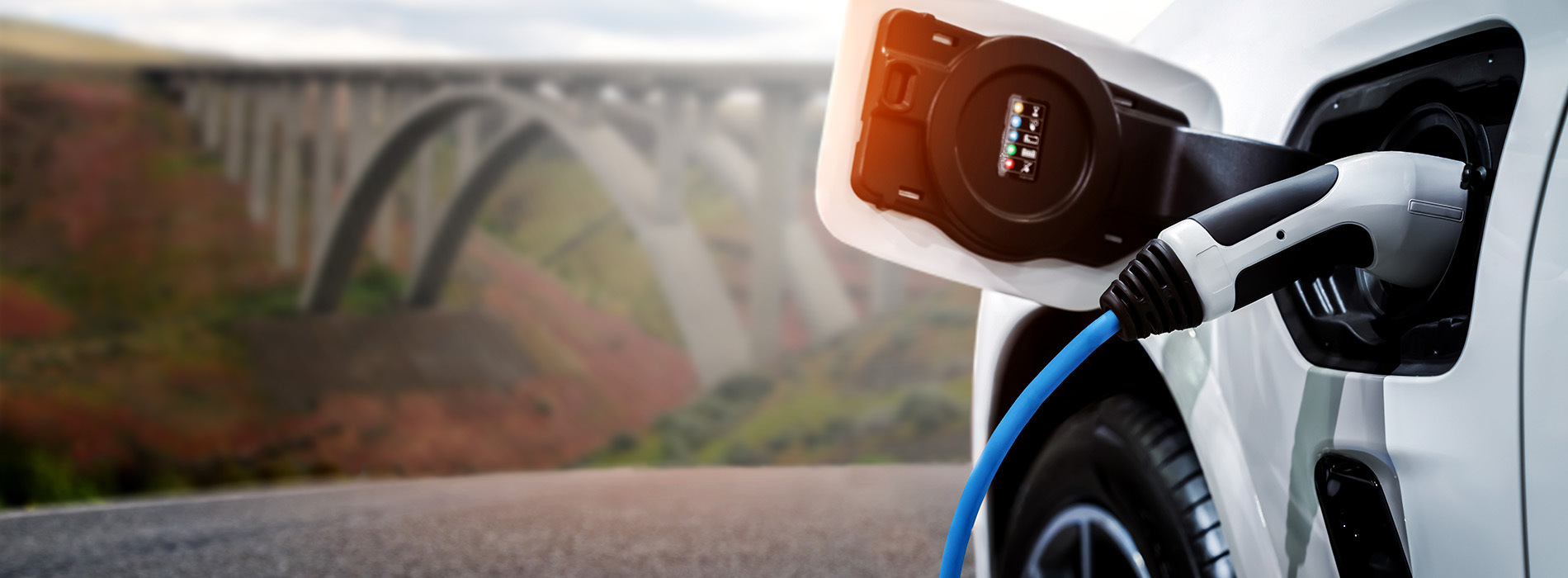How to Make Smarter Decisions in EV Investments by Buying EV Charging news
Leading EV Charging News: Trick Updates on Framework and Technology

Current Advancements in Fast-Charging Innovation

Moreover, innovations in battery technology, including boosted thermal administration systems and higher power density batteries, enhance fast-charging capabilities. These growths minimize the risk of battery deterioration during rapid charging, making sure long life and efficiency for EV owners.
In addition, the integration of clever billing options is enhancing individual experience, making it possible for real-time monitoring and dynamic prices versions. EV Charging news. This flexibility enables motorists to enhance charging times and costs based upon grid need
As automakers proceed to buy fast-charging networks, the collaboration in between sector stakeholders is important. Collaborations in between billing terminal companies and vehicle producers are leading the way for comprehensive protection, inevitably promoting a more robust EV environment. These improvements are crucial in sustaining the shift to sustainable transport.
Government Initiatives for Charging Expansion
Government efforts play a critical duty in the development of electric lorry (EV) billing facilities, facilitating the change to lasting transportation. Numerous government and state programs are being implemented to improve charging accessibility, lower the financial burden on consumers, and advertise the adoption of electric lorries.
Especially, the united state federal government has alloted substantial financing with the Facilities Investment and Jobs Act, which allocates $7.5 billion for EV charging network growth across the nation. This financing is intended at releasing hundreds of brand-new billing stations, specifically in underserved areas, therefore addressing array stress and anxiety among prospective EV purchasers.
In addition, numerous states are enacting legislation to simplify the permitting process for billing terminal installments, which is critical for speeding up deployment. Motivations such as tax credit reports and discounts for both consumers and organizations are also being introduced to motivate the setup of billing infrastructure.
Additionally, public-private partnerships are increasingly coming to be a focus, leveraging personal investment to match federal government funding. These efforts highlight a joint technique necessary for building a comprehensive and efficient EV billing network, eventually adding to a greener and more sustainable future.
Innovative Battery Solutions Enhancing Effectiveness
Changing the landscape of electrical car (EV) modern technology, cutting-edge battery solutions are considerably improving performance and performance. Advances in battery chemistry, especially with lithium-sulfur and solid-state batteries, are leading to enhanced energy density, which permits longer arrays and faster billing times. These new battery kinds have the potential to outmatch conventional lithium-ion batteries by using higher abilities while minimizing weight, therefore boosting overall automobile efficiency.
Moreover, advancements in battery administration systems (BMS) are optimizing energy use and prolonging battery life expectancy. Intelligent algorithms check battery wellness and performance, making it possible for real-time modifications to billing and discharging procedures. This not only boosts the performance of the battery however likewise makes certain a more reliable and lasting power source for EVs.
Furthermore, the assimilation of reusing modern technologies is addressing the environmental effect of battery manufacturing and disposal. Technologies in second-life applications for EV click for more info batteries are promoting their use in power storage systems, contributing to a round economic situation.
As these ingenious battery services continue to advance, they promise to transform the EV market, making electrical lorries extra appealing and available to a more comprehensive target market while sustaining global sustainability goals.

Cooperation Between Automakers and Charging Networks
Recognizing the crucial need for a robust charging infrastructure, automakers are progressively collaborating with billing network carriers to enhance the EV possession experience (EV Charging news). These partnerships intend to produce a seamless billing environment that profits customers and supports the change to electrical cars
Major vehicle brands are signing up with forces with recognized billing networks to increase their charging terminal protection, making certain vehicle drivers have accessibility to practical and reliable charging choices. For example, collaborations with networks like ChargePoint and Electrify America permit car manufacturers to integrate charging options straight right into their automobiles' navigation systems, assisting users to the local stations look these up and supplying real-time schedule updates.
In addition, these partnerships usually cause the development of fast-charging technologies that significantly minimize the time required to charge an EV. By pooling sources and know-how, automakers and billing networks can introduce quicker, creating remedies that fulfill the growing demand for electric wheelchair.
On you could try this out top of that, joint efforts may additionally lead to more standardized charging procedures, which can relieve consumer complication and promote broader EV adoption. On the whole, these calculated partnerships are critical in building a user-friendly and effective billing facilities that satisfies the requirements of an expanding electric automobile market.
Difficulties Encountering EV Billing Facilities
As the electric car market remains to grow, several difficulties are appearing that hinder the growth of a comprehensive charging facilities. Among the primary obstacles is the insufficient number of billing stations, particularly in rural and underserved urban locations. This void develops array stress and anxiety amongst possible EV buyers, deterring them from making the switch.
Furthermore, the absence of standardization in charging modern technology makes complex the infrastructure landscape. Variants in plug kinds and charging speeds can produce complication for individuals and increase operational complexities for charging network drivers.
One more pressing problem is the high price related to the installation and upkeep of billing stations, which can be an obstacle for both private companies and public entities. Ultimately, regulative difficulties and zoning limitations can delay the deployment of billing facilities, restraining development in broadening important services. Resolving these difficulties will be crucial for cultivating a durable EV ecological community that sustains the shift to sustainable transportation.
Final Thought
To conclude, the continuous innovations in EV billing modern technology, supported by substantial government efforts and cutting-edge battery services, are critical for the development and effectiveness of electric automobile framework. Collaborations in between automakers and charging companies additionally boost terminal protection, addressing the expanding need for obtainable billing options. Despite challenges that continue within the EV charging landscape, these advancements represent a favorable trajectory in the direction of a more reliable and lasting electrical vehicle community.
Technologies in charging infrastructure have actually led to the advancement of ultra-fast chargers qualified of providing up to 350 kW of power, substantially minimizing charging times. Variations in plug kinds and charging rates can produce complication for customers and increase operational complexities for billing network drivers.In final thought, the recurring improvements in EV charging modern technology, sustained by considerable government campaigns and innovative battery services, are important for the growth and effectiveness of electric automobile framework. Collaborations in between car manufacturers and charging service providers better improve terminal coverage, dealing with the growing need for easily accessible charging alternatives. Despite difficulties that continue within the EV charging landscape, these growths represent a positive trajectory towards an extra effective and sustainable electrical vehicle community.